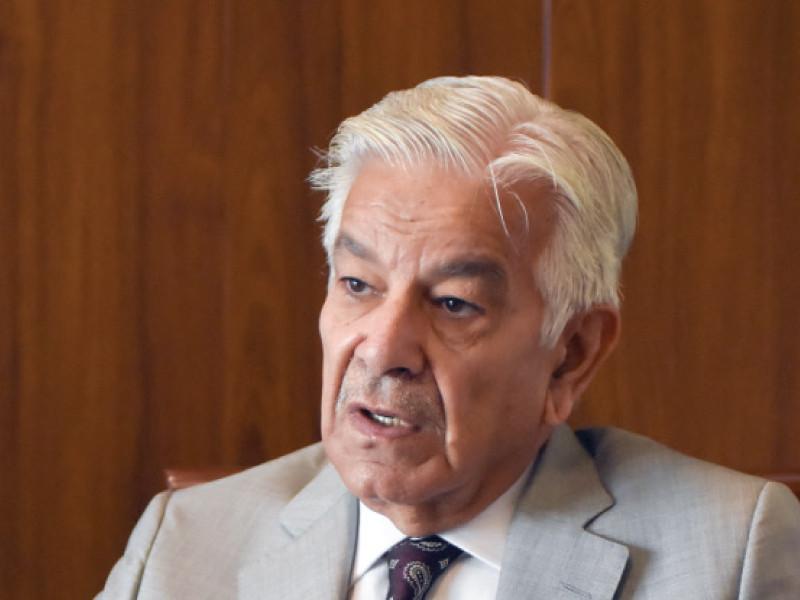Federal Defense Minister Khawaja Asif said that if talks were taking place between Pakistan and India, three key questions would be on the agenda.
Asif said that dialogue would focus on cashmere, terrorism and water -related concerns, addressing Geo News.
He noted that terrorism has been underway for 20 to 30 years.
The Minister added that this is a golden opportunity for India and Pakistan to solve the problem of cashmere.
Asif said: “There are three major points: cashmere, terrorism and water. These are long -standing problems in the past 76 years and must be discussed. Pakistan is the greatest victim of terrorism. It is a chance of gold for the two countries to solve the problem of terrorism. discussions.
Khawaja Asif pointed out that almost all wars between India and Pakistan have been above cashmere.
“The conflict two days ago was also due to cashmere. Modi tried to push the region into a living hell, but by the grace of Allah, we were saved. Our armed forces were held like an iron wall. These problems must now be resolved,” he said.
The Minister of Defense described as a cruel irony that the country that suffered the most from terrorism was blamed and attacked for this.
On the water dispute, he declared that the question had already been settled under the 1960s waters of the Indus waters, which could not be suspended.
Asif added: “The way we responded is proof of our preparation. The strong response we gave let them lick their injuries. Modis is criticized in the Indian Parliament, their media and their military briefings reflect their pain. It is also a diplomatic victory for us. Apart from Israel, no one stands with India. If India is done again, all the way the world behaves with a Pakistan. Our forces did not win as major victory as this time. »»
Pakistan-India cease-fire
Pakistan and India agreed with a complete and immediate ceasefire on Saturday after the days of intense military exchanges which raised fears of a large-scale conflict between the two nuclear arms neighbors.
The announcement was made for the first time by US President Donald Trump and later confirmed by Pakistani Prime Minister Shehbaz Sharif, Vice-Prime Minister Ishaq Dar, Indian Foreign Affairs Minister S. Jaishankar and US Secretary of State Marco Rubio. The ceasefire intervened after missile strikes, drone incursions and reprisal operations across the border.
Tensions have evolved after a deadly attack on April 22 in Pahalgam, India illegally occupied Jammu-et-Cachemire (IIOJK), which made 26 dead civilians. India blamed the elements based in Pakistan without providing evidence; Islamabad rejected the complaint.
India responded by closing the border of Wagah, revoking Pakistani visas and suspending the Water Treaty of the Indus – Mocking Pakistan labeled as an “act of war”.
By May 6 to 7, Pakistan launched Operation Bunyan-Un-Marsos, claiming to have shot down five Indian planes, including Rafales, and intercepted 77 drones of Israeli origin.
The United States has played a central role in the facilitation of back-channel diplomacy. Secretary Rubio and Vice-President JD Vance had discussions with senior leaders from the two countries, including PMS Shehbaz Sharif and Narendra Modi, as well as senior defense and intelligence officials.
Following Trump’s announcement, the two countries suspended military activity through land, air and the sea, although allegations of ceasefire violation was also reported on both sides of the control line (LOC).




